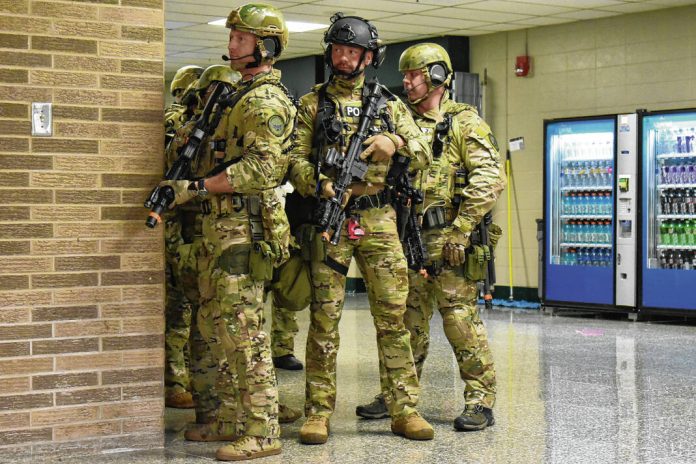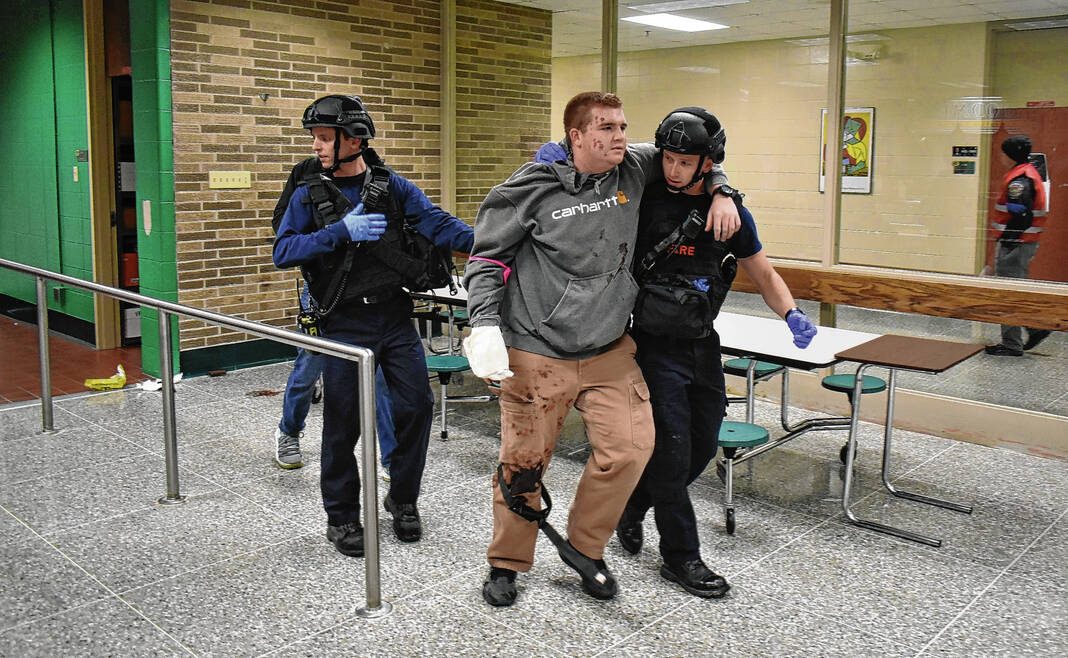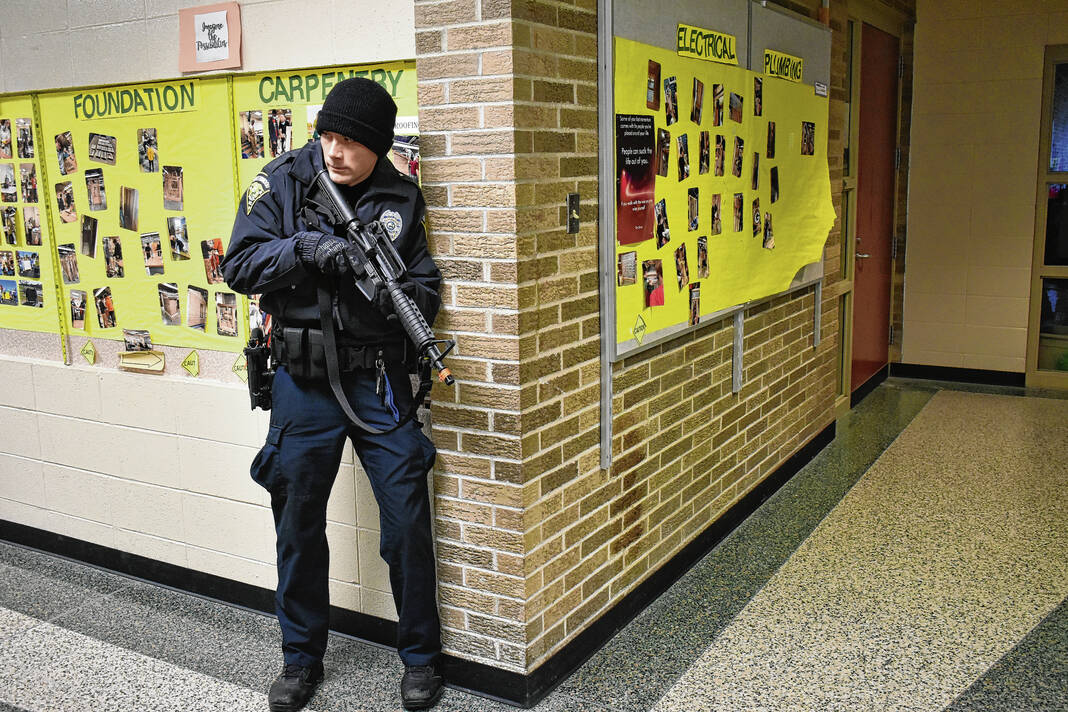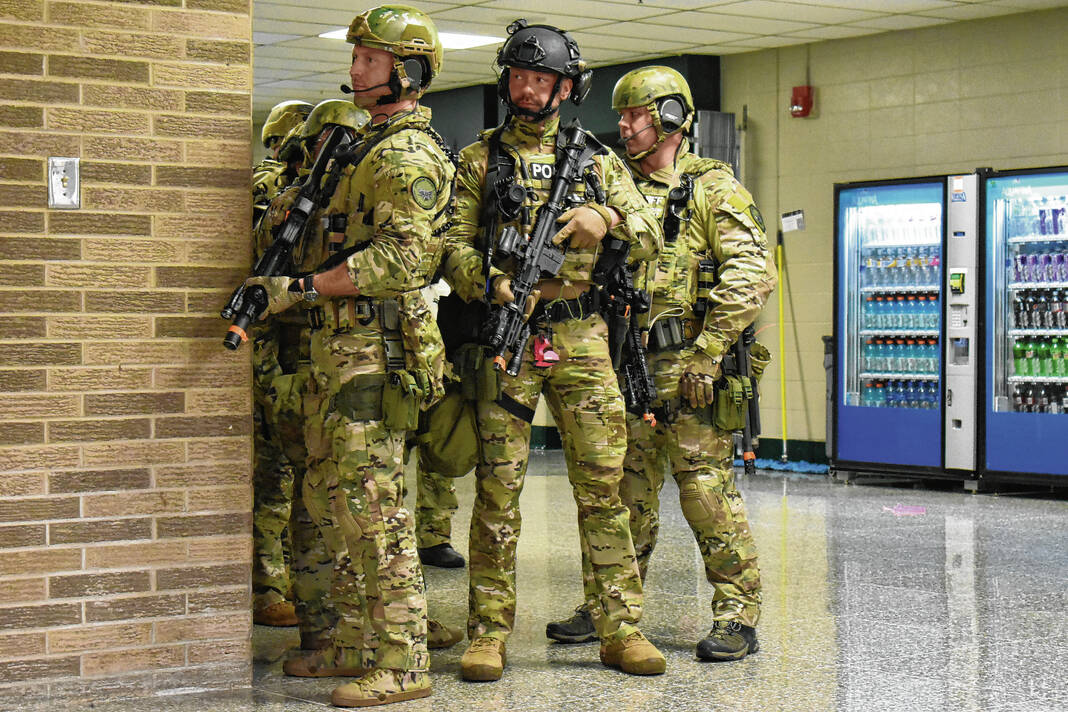A local lawmaker’s bill would make armed intruder drills at schools safer and give school resource officers better benefits.
State Rep. Michelle Davis, R-Whiteland, has authored House Bill 1104 which would make armed intruder drills at schools safer and more efficient. Her bill proposes that if a drill includes sensory components, schools would be prohibited from requiring student participation or holding it during regular school hours.
HB 1104 also would make school resource officers, or SROs, eligible for the 1977 Pension Fund, which gives death and disability benefits to police officers. The amended bill passed out of the House Education Committee in an 11-0 vote on Jan. 17, and out of the House Ways and Means Committee in a 23-0 vote Wednesday.
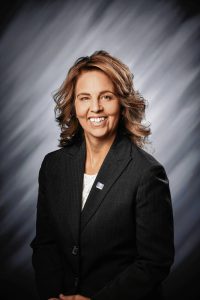
Davis crafted the bill after conversations with both the Clark-Pleasant and Center Grove Police Departments, both of which are tasked with protecting their respective school districts, and Sandy Hook Promise, a nonprofit formed after the 2012 school shooting that works in gun violence prevention programs and policy making.
Sandy Hook Promise had approached Davis about drafting legislation addressing the armed intruder drills, and she had taken it to Clark-Pleasant and Center Grove Police, who not only gave her their thoughts but also discussed how changing the eligibility for the 1977 fund would benefit them, she said.
The bill
One of the first things HB 1104 does is change “active shooter” to “armed intruder.” As Davis was talking with Clark-Pleasant Police Chief Chad Pryce, he had suggested the name change because different types of armed persons could come to schools, she said.
Along with active shooters, armed intruders could include someone who has a baseball bat or a knife, as examples.
“So we wrote that into the bill, and the bill establishes summary sub-protocols for those,” Davis said.
The Indiana Department of Education requires two active shooter drills a year, one each semester, at schools. Davis’ bill addresses the mental health component of these drills. With the bill, if a student needs to talk about some distress they experience after a drill, they are allowed to exit the classroom and talk to someone about what they’re feeling after the drill, she said.
Another key piece of the bill addresses drills with sensory components — the use of fake blood, gunshots, actors and SWAT teams. These drills would be required to take place before or after regular school hours if a majority of the student body is present, and students would not be forced to participate, according to the bill’s text and Davis.
Davis’ bill also would ensure these drills accommodate students who have mobility restrictions and sensory needs, like students who have IEPs. When schools make these drill plans, they should be thinking of these students ahead of time, she said.
“I’m sure they do it already, but this adds it into the law so it has to be done,” Davis said.
HB 1104 also would make school resource officers eligible for the 1977 Pension Fund. This will benefit police officers, families and school police departments, Davis said.
Locals in favor
Clark-Pleasant Police Chief Chad Pryce testified in favor of the bill during the Jan. 17 House Education Committee hearing. He cited a U.S. Secret Service report about SROs preventing one-third of mass attacks at schools, which highlights SROs’ roles as “a trusted adult in the school community.”
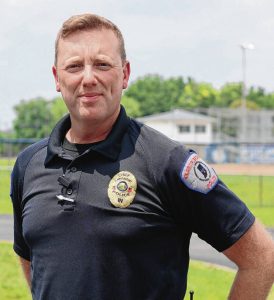
The department has been doing several trainings on this issue, and among the things Pryce has learned is that words matter, he said. Having the mindset that someone has to hear a gunshot to register a threat inside the building runs the risk of “delaying enacting emergency protocols,” Pryce said.
“Changing that language changes that mindset and empowers the school community to continue to train toward safer outcomes in a worst-case scenario,” he said.
Clark-Pleasant Police Officer Shari Mullins, a school resource officer, testified in favor of the pension fund change. A former Indianapolis Metropolitan Police Officer, she took part in the 1977 fund at the agency but was unable to continue when she joined CPPD due to current law.
Mullins left IMPD, where she had been a patrol officer, field training officer, sex crimes detective, hostage negotiator and Medal of Merit recipient because she wanted to spend more time with her family. As she knew she would lose the pension fund benefit, she felt she was deciding between her family and her career, she said.
“At the end of the day, I chose my family with the hope that I could help bring a change for myself and other school resource officers,” she said.
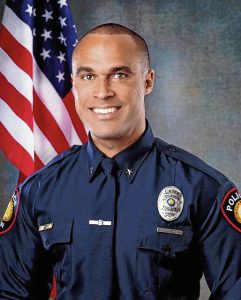
But Davis’ bill would allow Mullins to rejoin the fund. She encouraged the committee to pass the bill.
Center Grove Police Chief Ray Jackson told the committee the pension fund change would not affect him personally, as he has been ineligible for the fund his entire time at CGPD. But he said he felt it would increase the number of qualified officers who want to work in Indiana schools.
Over the years, Jackson has lost many qualified applicants because they are already in the 1977 fund and didn’t want to lose their pension by becoming an SRO, he said.
“By passing this bill, I think we’ll get some very good candidates and I think our schools will be in a much better place,” Jackson said.
What’s next
HB 1104 was heard by the House Ways and Means Committee on Wednesday. It was amended by Rep. Jeff Thompson, R-Lizton, the committee’s chairman.
Davis says Thompson’s amendment will ensure that qualifying school police officers pass all of the minimum requirements that any other police officer would have, like physical ability and other trainings. It would allow SROs to fall under the jurisdiction of existing police merit boards, as school corporations don’t have these bodies, she said.
She is also optimistic her bill will pass out of the House and make it to the Senate. It had a bipartisan vote in the House Education Committee, she said.
HB 1104 is an example of how the legislative process is supposed to work, she said.
“This is another one of those examples where we’re working together with our locals on issues that are out there,” Davis said.


